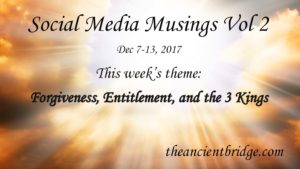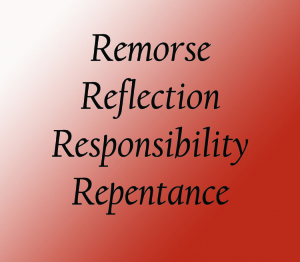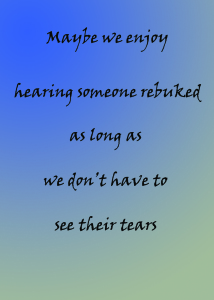Social Media Musings Vol 2 Dec 7-13, 2017
![]()
 This entry is going to be much shorter than last week’s because I had another minor stroke over this last week and I am taking a break from writing. I am on a “no teaching allowed” vacation to give my brain cells a chance to get re-oxygenated and recover. But just yesterday I was able to get some double checking done on the next book in the Context for Kids series, which I completed at the beginning of the fall, before all this happened. My designer David Farley from dco branding is doing an amazing job on it, as always – and like a true brother, he has taken on some of the work that is usually mine in order to take pressure off of me.
This entry is going to be much shorter than last week’s because I had another minor stroke over this last week and I am taking a break from writing. I am on a “no teaching allowed” vacation to give my brain cells a chance to get re-oxygenated and recover. But just yesterday I was able to get some double checking done on the next book in the Context for Kids series, which I completed at the beginning of the fall, before all this happened. My designer David Farley from dco branding is doing an amazing job on it, as always – and like a true brother, he has taken on some of the work that is usually mine in order to take pressure off of me.
December 7
Forgiveness isn’t a wiping of the slate clean, or a forgetting of sin – in fact, there can be no forgiveness without an identification of the offense. Forgiveness is instead a personal down payment on the promise of future reconciliation. Forgiveness says, “I just made your path to restoration possible, but only your regret, repentance, and commitment to rehabilitation can make it a reality.”
When have you truly forgiven from the depths of your heart? (And it IS a process, make no mistake) When the day comes when, like the father of the prodigal son, you excitedly start hoping that they will regret, repent, and return, so that they can once again be embraced (even if that embrace cannot be physical, but instead an acceptance into the Body of Messiah).
Note that forgiveness is not the same thing as refusing to press charges in case of a serious crime – we are still a people of justice and not injustice, we can forgive in our hearts and still know that God is not honored when oppressors are not held accountable.
December 8
The Peacefulness Project Week #3
Addiction, Peace, and Forgiveness: Are Addicts Entitled to Forgiveness?
Ever see those three words together in a sentence without a bunch of disclaimers? Me neither.
Speaking from experience as someone who grew up with an addict, and who was an addict, I can tell you quite plainly that addicts are not peaceful people – not on the inside or on the outside. Our existence is largely centered around the gratification of desires, a character flaw which drives us to seek out comfort, pleasure, distraction, stimulation, whatever. It can manifest itself through drugs (any drug), sex (including porn), food, violence (common with people addicted to control), obsessive video game playing, etc.
It can also manifest itself in demands for immediate forgiveness and reconciliation, which is what I want to discuss today.
Above all, addicts resent discomfort – it is offensive and must be remedied, immediately. What’s more, addicts feel entitled to comfort – even at the expense of the comfort of everyone around them. This is what makes them patently NOT peaceful people, not really. I was divested of the illusion that the problem was the drug of choice when the addict in my life gave up his drug yet retained the exact same character. Nothing changed. He came home, dying, had to give up his drug of choice, quit cold turkey and just found another. Every dream I had that the person himself would change were dashed, and every behavior I had blamed on the drugs turned out to just be him. Addicts are at war with discomfort, boredom, and anyone who stands in their way of relieving it.
This leaves the people in their lives with a concrete problem – addicts generally destroy relationships in one way or another. They do so over a long period of time: eroding trust, bank accounts, and their health – as well as the health (mental and physical) of those around them. One day, they may decide to give it all up, and when they do it without the benefit of a twelve-step program or other support group, they often become tyrants.
“I am trying, you need to forgive me!”
That is the cry of an addict who is still seeking comfort above everyone else’s needs.
It is true that, as believers, we are obligated to forgive (see yesterday’s post for an explanation of what that does and does not entail) – but that doesn’t mean we will be able to at the drop of a hat. It doesn’t mean that the addict’s victims are going to stop hurting, and begin trusting, or want to be close. That means this – although believers are obligated to forgive, the addict is not entitled to forgiveness, especially not on their own terms. When they expect a clean slate time and time again, they are treating their victims like robots who are expected to simply respond to each new attempt with as much hope as the first, second, third… and are not permitted to be hurt when the drug is chosen once more.
Addicts are used to setting the terms by which everyone else has to live. That doesn’t change when they give up their drug, it generally intensifies. Addicts, being self-focused and enabled (just try not enabling an addict when you are a child and he or she is your parent!), will leave the drug without really dealing with the self-centered attitude that rooted the addiction in the first place. They did the drug of choice because they wanted comfort, not the comfort of others, and the last thing they want when they give it up is to consider the needs of others over their own immediate desire for gratification.
Here’s the deal with sin – and I am not talking about a perceived slight or an accident, I am talking about genuine transgressions against other people. When we seriously transgress against another person, when we make the choice to do that, we need to go in with the knowledge that they may never forgive us, and that is their choice, a choice we have no control over. We don’t have a right to demand forgiveness, no one is entitled to it. When we damage lives, those lives don’t go back to normal just because we feel badly about it. If I beat you up ten times, and say I am sorry, that expression of remorse is not going to heal you or cause you to trust me, or give you a reason to reconcile whatever relationship we had before the first beating. I made an irrevocable choice, one that has long-lasting consequences, one of which might be that I don’t get you back. Even if you do forgive me, my choice to beat on you has consequences that forgiveness won’t erase. The sin happened, it is a matter of history that is unchangeable. I have no right to expect you to live as though it never happened.
Forgiveness, as I alluded to yesterday, is a refusal to have a two-sided sin war. It is a downpayment on future reconciliation IF certain conditions of righteousness are met. It doesn’t mean that you don’t call the police when I beat you up – I committed a crime and, for the safety of the community, I need consequences. It also doesn’t mean that you don’t defend yourself – but you don’t go any further than is required to do so. Forgiveness should be enacted, if we have been saved by the blood of the Lamb and have been forgiven our sins, because it is our obligation – a recognition of the debt we owe to our King. But forgiveness is not deserved, it is a free gift. It is always a free gift, whether divine or given by ourselves, but restoration and reconciliation must be earned. Forgiveness clears the path for the sinner so that nothing except themselves stand in the way of repentance. Forgiveness means that we refuse to retaliate sinfully in return for their sins. Forgiveness is the gift we give back to God, and we can do it because we know that the resurrection is real, and that justice will be performed, if not in this life, then in the world to come. Without that assurance, who could truly forgive without sinking into silent resentment?
Victims have rights, and yet believing victims also have obligations to be radically forgiving. It’s the high price tag for being conformed to the image of our King, it’s the small yet very costly price we pay to be like Yeshua/Jesus. It would be grossly unfair if it were not for the Resurrection. It would be horrifically unjust if we had not ourselves been forgiven. It is actually one of the reasons people decide to walk away from Christianity altogether. We want that radical forgiveness, but giving it causes us to balk.
The story of the Cross is that sinners get a gift that they don’t deserve. The story of the Cross is that each one of us got a gift that we didn’t deserve, and our part of that story is how we respond to it – no one, except ourselves, can decide how we will respond or will be held responsible for our response. The question is: How badly do we want to be like our Savior? Is it enough to learn how to carry the cross of radical forgiveness? To pick it up every single day and carry it? To learn and relearn to forgive with each new betrayal?
I tell you the truth, it is the only path to true peace with God, and if it were easy then everyone would do it.
December 10
Been thinking the last few nights about Saul, David, and Absalom. Author Gene Edwards wrote about them in a book entitled The Three Kings and I read it about fourteen years ago. It had some really profound truths in it about character that I have found to be quite the revelation in my own life. Saul, David, and Absalom provide us with brilliant Scriptural/historical examples of what happens when cowards, even anointed ones, come to power (they often become bullies), when anointed men, brave ones, are hunted (they will often run away, refuse to engage, and won’t retaliate in kind), when good men, anointed leaders, become intoxicated with power (others are violated), and when non-anointed, charismatic, appealing, self-appointed, angry men try to seize the Kingdom through violence (they become worse villains than the ones they ousted). I have dealt with all of these kinds of people over the last nineteen years, and especially over the past seven.
The internet has made the Sauls and Absaloms far bolder than they ever could be in real life where there are consequences and face to face meetings, and you actually have to live in the community you are impacting with your words and actions. An Absalom, who dazzled others with his beauty, his way with words, and his emotional displays, can gather quite the crowd around himself just by being angry and promising the world; he can quite make one forget that he hasn’t been anointed king! Then there are the Sauls – he seemed humble at first, right? He later became vengeful, paranoid and prone to fits of anger. So blinded by paranoia and anger, he hunted a man who kept avoiding him and who tirelessly worked for the good of the Kingdom that Saul had turned against him. And we can’t forget about David, who started and ended well, but in the middle became a typical ancient Near Eastern king capable of the worst of crimes.
We all want to see ourselves, and our favorite leaders, as David at the beginning. But we need to take a closer look, always. Are we (or our leaders) the hunters or the hunted. Are we prone to fits of anger, lashing out (even in private or behind the scenes), and destroying those we feel intimidated by, or are we the ones quietly working for the Kingdom while hunted, daring not to speak against those who hunt us because we fear and trust God? When we have a measure of authority, do we lord it over others as the Gentiles do – with oppression and vindictiveness? And when we have no authority, but only the feeling that we should have it because we are angry and because we can see what is wrong, do we try to seize the Kingdom by force and become guilty of worse than those whom we supplanted?
No tyrant ever felt as though he/she wasn’t perfectly justified. Therefore, we are just as capable of self-deception. When Saul and David were anointed, they received the Holy Spirit – therefore we can’t presume that we won’t fall to the same temptations when we want to badly enough.


